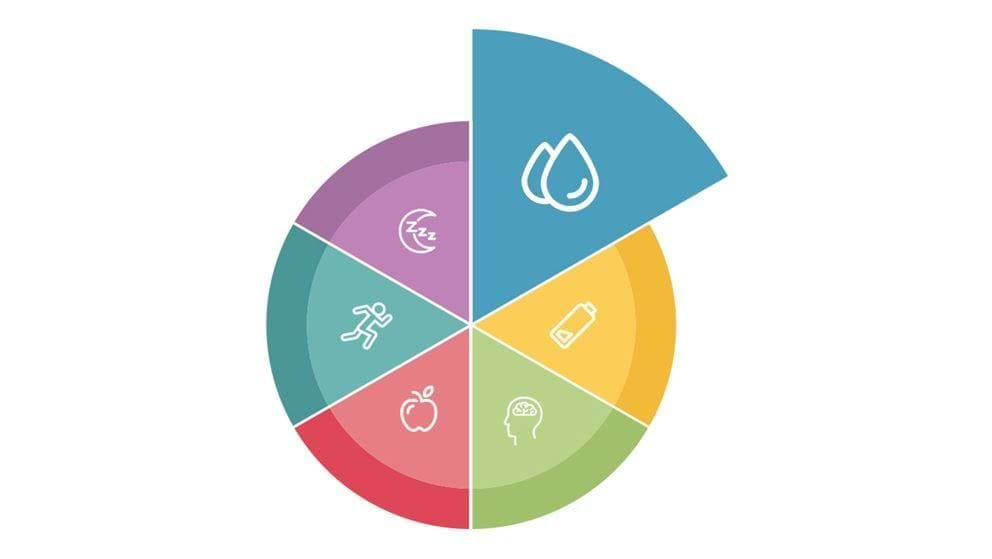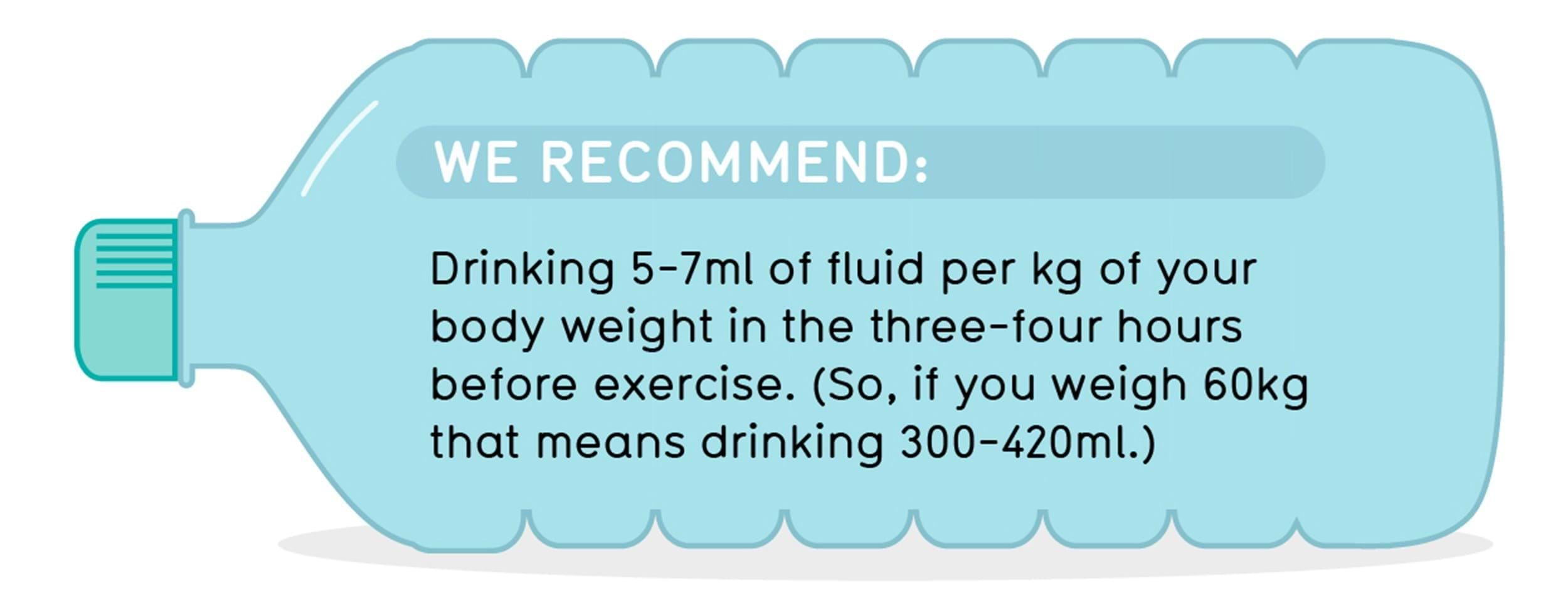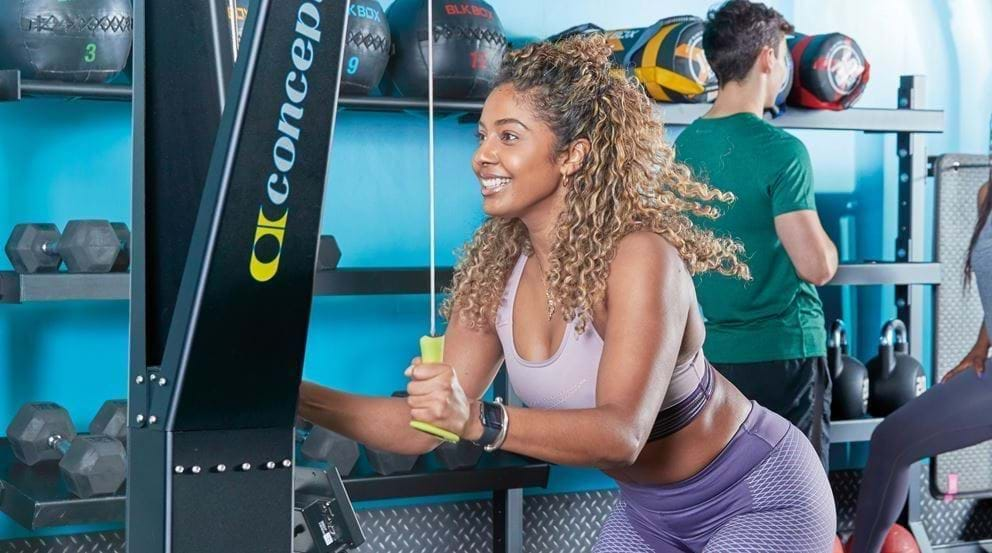HOW TO STAY HYDRATED

Stay Hydrated: Tips and Insights for Optimal Health
As an old Slovakian proverb says, pure water is the world's first and foremost medicine. This is because water protects our brain, nervous system, and other internal organs, aids digestion, fuels our muscles, lubricates our joints, and even helps prevent wrinkles and aging.
Our bodies are composed of 60-65% water, so staying hydrated is crucial, especially when exercising, as you can lose up to a liter of water per hour. Here's a breakdown of why staying hydrated is important and small changes you can make to your lifestyle to ensure you stay well hydrated.
Improving Brain Performance with Hydration
Since water makes up 75% of our brain, it's no surprise that staying hydrated boosts brain function. Research has shown that drinking water regularly improves attention in school children (Booth et al., "Water supplementation improves visual attention and fine motor skills in children," Education and Health).
A 2015 study at Loughborough University found that dehydration affected driving accuracy and performance, leading to incidents like lane drifting and late braking, similar to those that occur when driving under the influence of alcohol or drugs.
Additionally, when our cells are dehydrated, they can't absorb and use glucose efficiently for energy. So remember: having a drink can help you think.
How Much Fluid Is Enough?
It's best not to wait until you feel thirsty to drink, as you'll likely already be dehydrated. Current recommendations suggest six to eight glasses of fluid per day, but if you're regularly active, you might need to drink more to meet your body’s needs.
We get about 20% of our daily water intake through food, particularly fruits and vegetables with high water content, but we need to drink the remaining 80%. As a general rule, water should be enough to replace the fluid lost during an hour of moderate exercise. For more strenuous exercise lasting more than an hour, an isotonic drink can help replace sodium and other electrolytes to keep you hydrated.

One of the most reliable ways to check if you're dehydrated is the color of your urine. The goal is to maintain a nice pale yellow color throughout the day. If it’s strong in color or smell, your body is probably starting to get dehydrated so have a glass of water and within 20-30 minutes, you'll feel the physical and mental benefits.
Beware of So-Called Healthy Drinks
Many so-called diet drinks contain artificial sweeteners that can actually increase our craving for sugary and sweet foods. A study found that women who drank diet lemonade instead of regular lemonade ended up consuming more calories overall.
Be cautious with seemingly healthy choices like juices or smoothies. Although the sugars in them are naturally occurring, they can disrupt blood sugar levels and are high in calories. Additionally, juices and smoothies often have less fiber than whole fruits. For example, a small glass of orange juice contains twice the sugar and only half the fiber of a whole orange.
A great healthy and cost-effective alternative is to make your own isotonic sports drink. Here's a recipe recommended by many sports nutritionists: Mix 250ml of regular squash or 200ml of high juice squash (not sugar-free or low-calorie) with 750-800ml of cold water, and add 1/4 level teaspoon of salt. Enjoy!
Does Alcohol Have Any Real Benefits?
The benefits of alcohol, especially red wine, have been overstated over the years. Cutting down on alcohol can help you feel less tired, improve your skin, aid in weight management, and save you money.
The downsides of alcohol consumption are both immediate and long-term. As a potent diuretic, alcohol increases urine production, leading to dehydration. It is also high in “empty” calories, which can contribute to weight gain; high in carbohydrates, which disrupts blood sugar levels; and lowers willpower, leading to unhealthy food choices and snacking. Long-term high alcohol intake can damage the heart muscle, increase blood pressure, and raise the risk of stroke and heart disease.
However, alcohol doesn't need to be completely off-limits. Here are some tips to minimize the risks of drinking:
Drink a couple of glasses of water before starting on alcohol to ensure you're well hydrated.
Stick to less than 14 units of alcohol per week, spread out over at least three days. This equals 1.5 bottles of wine or 5 pints of 5% ABV lager per week, for both men and women.
Opt for a bottle of beer instead of a pint, a small glass of wine instead of a large one, and single measures.
Mix a glass of white wine with soda water to make a longer drink.
Alternate between an alcoholic drink and a soft drink (preferably water) to counteract dehydration and keep calorie intake low.
Tea and Coffee: The Caffeine Conundrum
Tea and coffee are primarily water, so they help keep us hydrated. Caffeine can be an effective performance enhancer and has some health benefits in moderation. However, too much caffeine can have diuretic effects, disrupt sleep, and cause anxiety. To mitigate these effects, drink a glass of water alongside your tea or coffee.
If you're looking to reduce your caffeine intake, do it gradually over two weeks to avoid caffeine headaches. Here's a guide to the caffeine content of popular drinks:
- One mug of instant coffee: 100mg
- One mug of filter coffee: 140mg
- One mug of tea: 75mg
- One can of cola: 40mg
- One can of energy drink: up to 80mg
4 Quick and Easy Tips for Staying Hydrated
Now that you understand the importance of staying hydrated, here are some tips to ensure you never go thirsty:
- Don't wait until you're thirsty to drink. Invest in a reusable water bottle to keep water with you at all times.
- Add natural flavors to your water by infusing it with fresh fruit. Try frozen slices of lemon or lime, or choose from melon, berries, pineapple, cucumber, fresh mint, basil, or fresh ginger.
- Set an hourly alarm on your phone to remind you to drink water, and take a few sips after using the restroom. Drink a large glass of water before meals. This helps keep you hydrated and can reduce your appetite, preventing overeating.
- Stay hydrated during exercise by drinking plenty of water earlier in the day. This will improve your performance and ensure you're optimally hydrated for your workout


